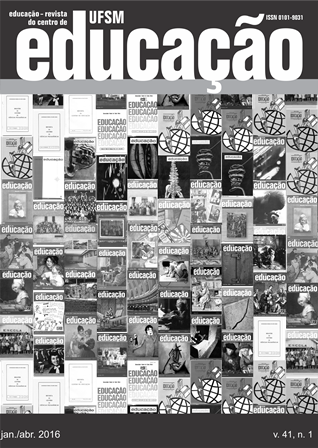Dimensions of Rural Education
DOI:
https://doi.org/10.5902/1984644417979Keywords:
Rural Education, Education and work, Educational discourse.Abstract
The Rural Education, as part of a counter-hegemonic project of society, goes beyond its school version by fighting against the capitalist logic. Its proposal incorporates political, social, and cultural dimensions, in addition to the pedagogical dimension. This article discusses three of these dimensions: epistemological, sociological and formative, and their articulations. In its epistemological dimension, the Rural Education challenges the capitalist exploitation of science; on the sociological level, it opposes the exclusion of culture and knowledge of the rural people covertly imposed by the dominant class; and from the formative point of view, it promotes the work as an educational principle. It supports the right of rural people to think and to define education from their place, their culture and their needs.Downloads
Published
How to Cite
Issue
Section
License
Declaration of originality
We declare that all articles present in the journal Educação (UFSM) are originals and were not submitted for publishing on any other publication, as a whole or a fraction. We also declare that, after being published by Educação (UFSM), a paper will not be submitted to another journal within two years. After this time, our journal transfers the publishing rights to the authors, with a permit granted by the Editorial Council.
We also acknowledge that the originals’ submission to Educação (UFSM) implies on a transference of copyright for physical and digital publishing to the journal. In case of noncompliance, the violator will receive sanctions and penalties predicted by the Brazilian Copyright Protection Law (n. 9610, dated 19/02/98).
Attribution 4.0 International (CC BY 4.0)
This license lets others remix, transform, and build upon the material for any purpose, even commercially, and copy and redistribute the material in any medium or format.

This work is licensed under a Creative Commons Attribution 4.0 International (CC BY 4.0)






